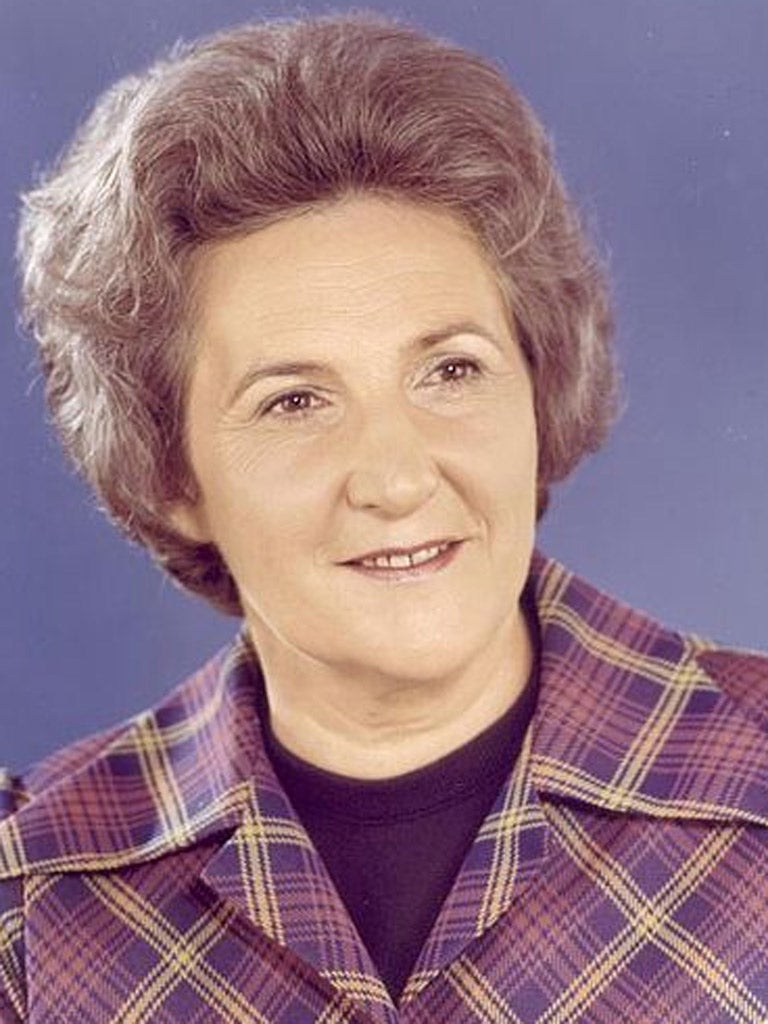
Your support helps us to tell the story
From reproductive rights to climate change to Big Tech, The Independent is on the ground when the story is developing. Whether it's investigating the financials of Elon Musk's pro-Trump PAC or producing our latest documentary, 'The A Word', which shines a light on the American women fighting for reproductive rights, we know how important it is to parse out the facts from the messaging.
At such a critical moment in US history, we need reporters on the ground. Your donation allows us to keep sending journalists to speak to both sides of the story.
The Independent is trusted by Americans across the entire political spectrum. And unlike many other quality news outlets, we choose not to lock Americans out of our reporting and analysis with paywalls. We believe quality journalism should be available to everyone, paid for by those who can afford it.
Your support makes all the difference.Although the Communist regime of Walter Ulbricht and Erich Honecker always claimed that East Germany was the most advanced state as far as women's rights were concerned, it proved very difficult for women to advance to leadership positions in many spheres.
Inge Lange was an exception. She was one of only five women to reach candidate member status of the ruling Politburo of the Socialist Unity Party of Germany (SED) in its 39 years of existence. She reached that position in 1973 and was able to hang on until 1989, when she, and her comrades, were forced to resign.
Lange was born Ingeburg Rosch, the daughter of an engineering worker and Communist, Alfred Rosch, in Leipzig. Imprisoned between 1934 and 1936, Alfred survived the Nazis only to be shot dead in July 1945 protecting public property from plunderers.
Inge, as she was known, completed an apprenticeship as a seamstress and turned to politics after the arrival of the Red Army in 1945. She joined the Communist Party in the same year and the SED when it was established in 1946. Between 1946 and 1951 she was a full-time official of the Free German Youth (FDJ), the SED-run youth organisation. From 1961 she headed the SED's women's commission.
Between 1947 and 1950 she worked as an official of the FDJ at the Wismut AG uranium mines on the Czech-East German border. This was a tough assignment. The Soviets had taken over the mines as a key part of their nuclear-arms programme. All young people working there were members of the FDJ and Lange was responsible for virtually every aspect of their lives.
She had to report to the SED organiser, who, in turn, reported to their Soviet opposite numbers who exercised ultimate control. Working and living conditions were poor. Security was tight. She must have got top marks for reliability, because she was rewarded with a year's study in Moscow.
Lange was a member of the East German parliament, the Volkskammer, from 1952 to 1954, and 1963 to 1989. This body had a relatively high level of women members, rising from 23.8 per cent in 1950 to over 32 per cent in 1986 – but it was a rubber-stamp body directed by the SED. Luise Ermisch, Margarete Müller and Margot Honecker, wife of Erich Honecker, were among her fellow members.
Frau Honecker had also climbed the FDJ ladder, studied in Moscow and was a member of the women's commission which Lange headed. She was also minister of education for many years. Lange had to be very careful with her, as Honecker regarded herself as first lady of the state. From 1971, Lange was deputy chair of the Volkskammer's committee for work and social policy.
It seems unlikely that Lange could have achieved her greatest success without the green light from Margot Honecker. This was the legalisation of abortion, which was passed by the Volkskammer on 9 March 1972, less than a year after Erich Honecker had replaced Ulbricht as SED chief.
The new law was opposed by the East German churches and by some in the medical profession. Its passage was remarkable in another way. This was the only occasion in the SED-controlled Volkskammer's history that the vote was not unanimous. The SED-allied Christian Democratic Union was given a free vote, and 14 of its members voted against. Several others abstained.
The new law also provided for the free distribution of the contraceptive pill. The result of the change in the law was that by the end of the 1980s, every third pregnancy led to an abortion. The birth rate fell dramatically. It had been passed partly in response to the demand for labour given the outpouring of three million before the Wall went up in August 1961. Women were needed in all spheres.
Lange is survived by a daughter, the writer Katja Lange-Müller. Expelled from school at the age of 16 for "unsocialist" behaviour, and then carefully watched by the Stasi and prevented from attending college, she learned to be a typesetter, and later worked as a nursing assistant in a psychiatric clinic. She turned her back on the SED regime in 1983, and moved to West Berlin. She had seen what her mother had failed to see.
When the Berlin Wall was opened in November 1989, the Politburo resigned, but Lange was one of those re-elected by the Central Committee. The end came on 3 December when the entire Central Committee resigned. On 21 January 1990 she was among those expelled from the party. She withdrew from public life.
David Childs
Ingeburg (Inge) Lange (born Rosch), politician: born Leipzig, Germany 24 July 1927; died Berlin 13 July 2013.
Join our commenting forum
Join thought-provoking conversations, follow other Independent readers and see their replies
Comments